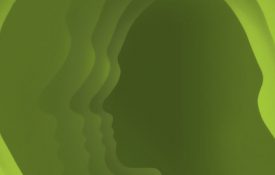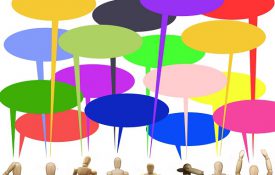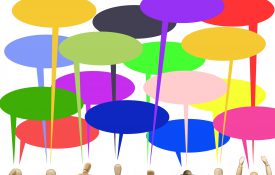-
Trump Turns a Crisis Into His New Nightly TV Show
To anybody suddenly tuning into the president’s news conference this Monday evening, it might have seemed like the leader of the free world was channeling an off-hours televangelist, taking advantage of a pandemic to offera hazy tale of a miraculous cure. “… a gentleman,” Donald Trump intoned from inside the White House, invoking anantimalarial remedy calledhydroxychloroquine, “they thought he was not going to make it. He said goodbye to his family. They had given him the drug just a little while before, but he thought it was over. His family thought he was going to die. And a number of hours later, he woke up, felt good. Then he woke up again, and he felt really good.
-

New Content from Advances in Methods and Practices in Psychological Science
A sample of articles on the effect of gustatory disgust on moral judgment, the improvement of practices for selecting variables, and the effects of studies’ originality and statistical significance on the peer-review process.
-
Coronavirus: Bay Area Families Find the Silver Lining in Home Confinement
In the first week of lockdowns for a historic global pandemic, families are struggling to adjust to a new reality. Parents have to play the role of teacher, a job they have no training for. They’re also trying to manage their own anxiety, while their kids, generally pretty social creatures, are cut off from friends. ... “At the same time, the pace of our lives had become overly frenetic,” said Estrella, who is working from home for a research and evaluation firm. “The kids were feeling overwhelmed by the pace, their parents’ work lives, the requirements of school.
-

New Research From Clinical Psychological Science
A sample of research on voter perceptions of Donald Trump’s personality, depression and self-esteem, trauma exposure, digital-media use and depressive symptoms, pathological personality traits, social anxiety disorder and social interactions, and how to eat healthier.
-

APS Roundtable: Psychological Science and COVID-19, What We Know and What We Can Do
On March 18, the Association for Psychological Science convened a virtual roundtable of four APS members who discussed the psychological dimensions of COVID-19 and how it is affecting both society and individuals.
-

REDIRECT – APS Roundtable: Psychological Science and COVID-19, What We Know and What We Can Do
An virtual roundtable of experts share their views on the psychological impact of COVID-19.

